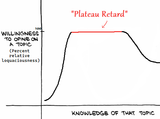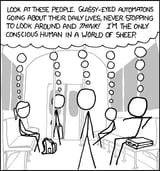>>213622558
It's a bit more complicated than a TL;DR but the gist of it is this:
1. For starters, the term Hypernormalization refers to how everyone in the Soviet Union in the late 1970s and 1980s knew damn fucking well that Communism failed and life was a literal hell on Earth of poverty and corruption with no way to get ahead. BUT the Soviet government basically was so fucking evil and refusing to admit that Communism failed, that under penalty of death or life imprisonment, you had to fucking eat shit, stay quiet, and publicly lie that life in the USSR was the best in all the world.
2. The film itself is a half dozen tangents loosely connected together by two central storylines:
The first is that Kissinger pretty much irrevocably turned Syria against the west by lying to it's leader to his face about how he wouldn't get Egypt to create a separate peace with Israel. This was due to Kissinger being terrified of a united Middle East and him preferring to keep everyone at each other's throats and using the Palestinian displacement by Israel to basically make the Middle East a cauldron of chaos unable to rise as a united power that would threaten the US/Russian dual system of world power.
The second was that after NYC went bankrupt, three things happened:
1. Banks started exerting power over politics, putting profits over helping the public/fixing the world's problems. This led to "too big to fail" and the idea that government shouldn't try and fix shit, but make things "more managable" because keeping society in stasis protected the status quo for the banks and big business.
2. That the left abandoned the pursuit of political power to instead capture control over pop culture and pushing the idea of "the political is personal", which is why the left got their asses kicked by Reagan and Bush I.
3. When Bush II took office, the internet became a containment zone for lefties to bitch and moan and not do shit to change the world.






















